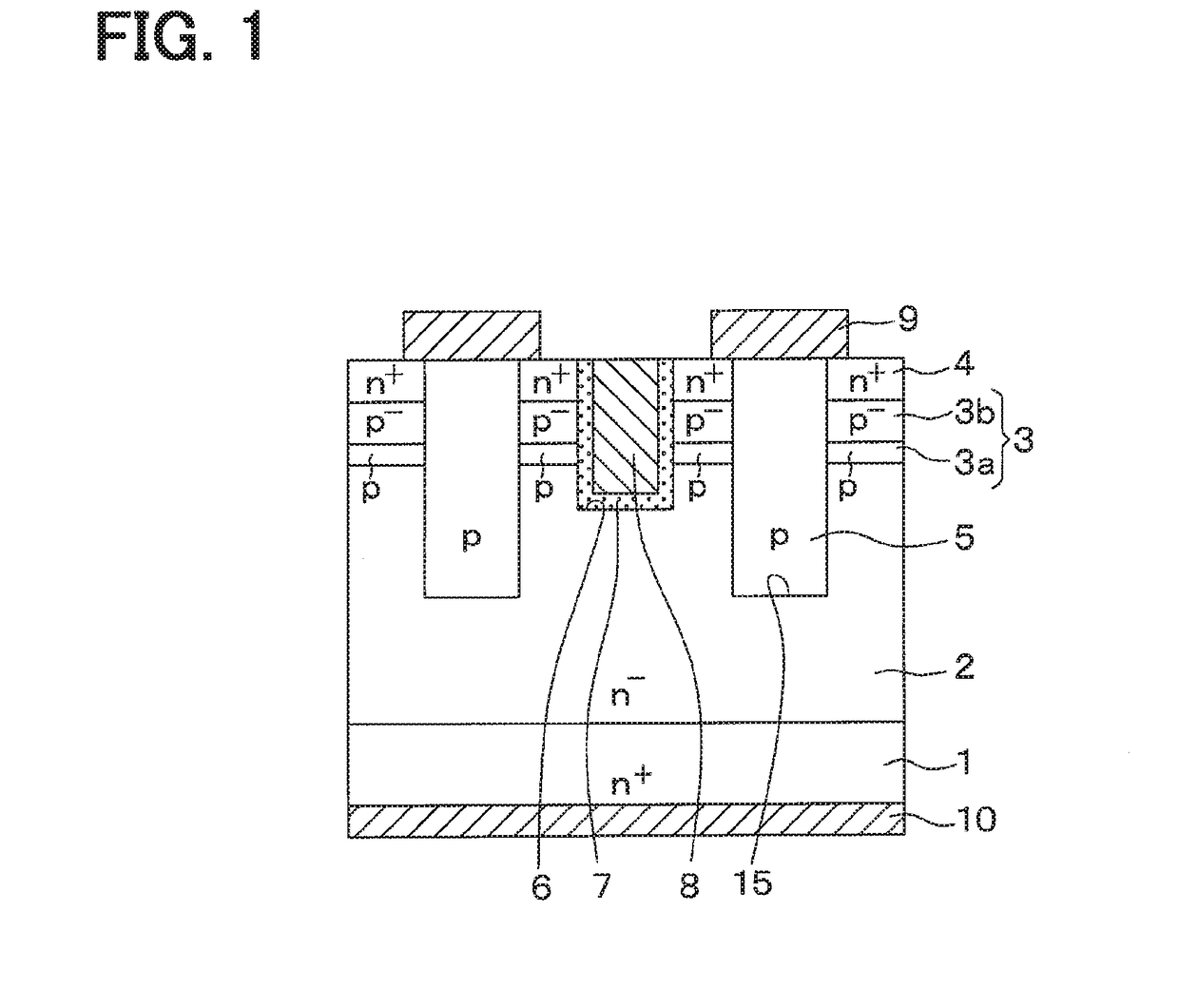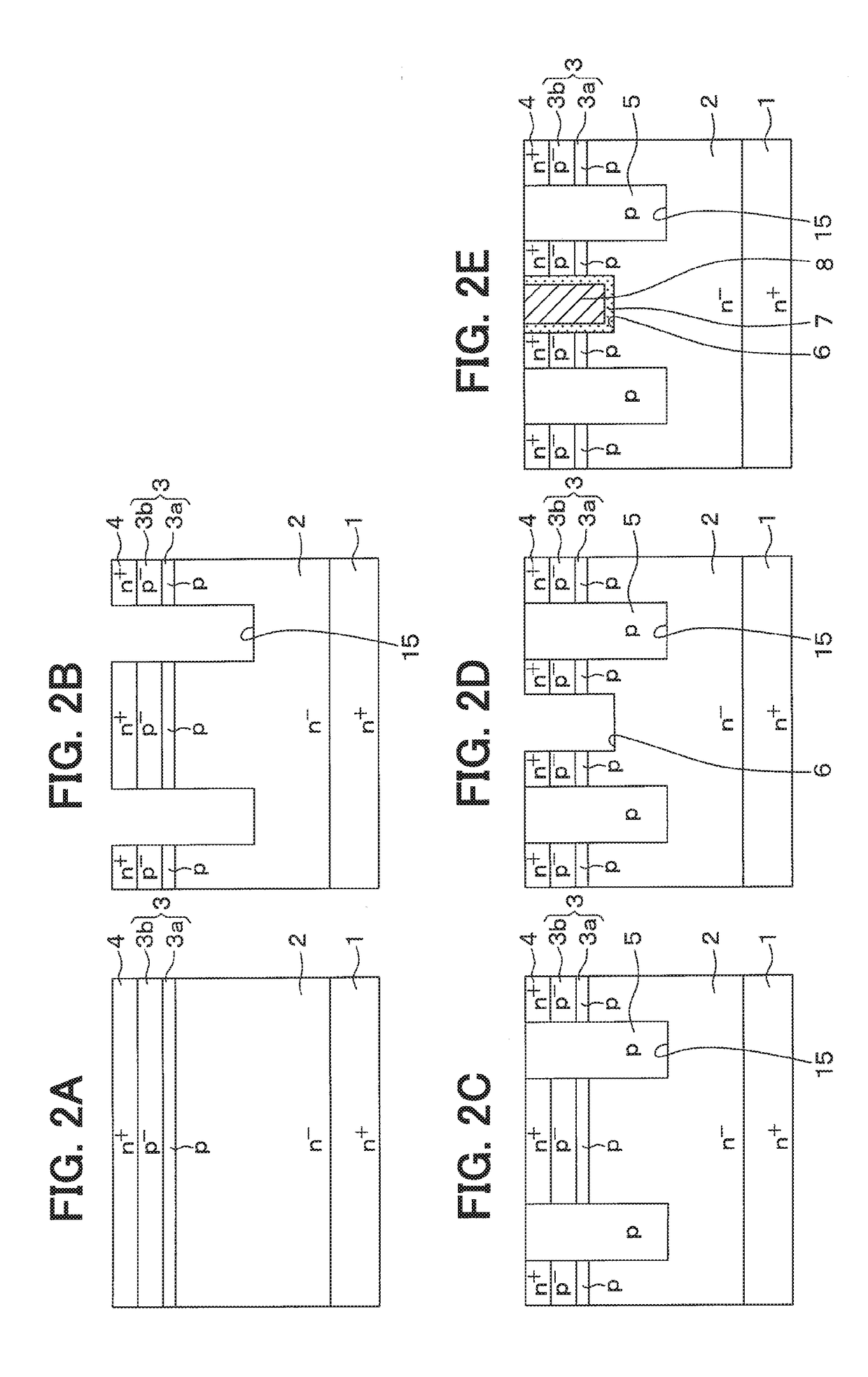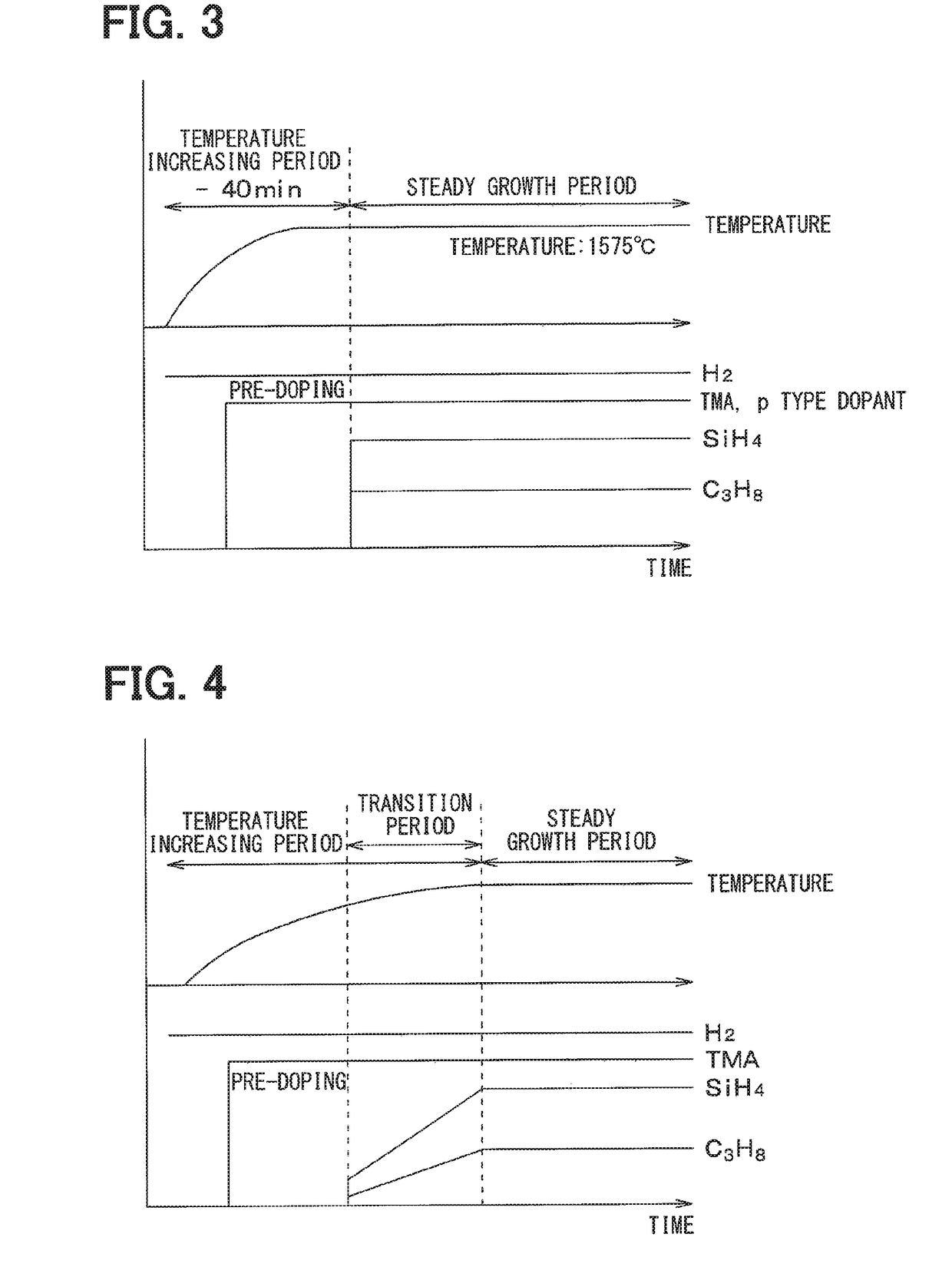Compound semiconductor device and method for manufacturing the same
- Summary
- Abstract
- Description
- Claims
- Application Information
AI Technical Summary
Benefits of technology
Problems solved by technology
Method used
Image
Examples
first embodiment
[0020]An SiC semiconductor device that includes a vertical MOSFET having an inverted type trench gate structure according to the present disclosure will be described with reference to FIG. 1.
[0021]An SiC semiconductor device illustrated in FIG. 1 includes a vertical MOSFET having a trench gate structure and disposed in a cell area. The SiC semiconductor device has an outer peripheral resistant structure, which is not shown, disposed in an outer peripheral area surrounding the cell area.
[0022]The SiC semiconductor device has a semiconductor substrate that includes an n+-type substrate 1 providing a high concentration impurity layer formed of SiC, and an n−-type drift layer 2 disposed on a front face side of the n+-type substrate 1 and formed of SiC having an impurity concentration lower than the impurity concentration of the n+-type substrate 1. For example, the n+-type substrate 1 has an n-type impurity concentration of 1.0×1019 / cm3, and a front face constituted by (0001) Si face. F...
second embodiment
[0061]A second embodiment will be described. In the present embodiment, the introducing method of the SiC material gas is changed from the first embodiment. Since the other parts are similar to the first embodiment, only parts different from the first embodiment will be described.
[0062]As shown in FIG. 4, the introduction of the SiC material gas is started during the temperature increasing period. The introducing amount of the SiC material gas is decreased in the initial stage of the introducing and then gradually increased toward the desired introducing amount. The period in which the introducing amount of the SiC material gas is gradually increased is defined as a transition period and the period after the introducing amount of the SiC becomes constant is defined as a steady growth period. During the transition period, the epitaxial growth is conducted moderately. During the steady growth period, the epitaxial growth is conducted with desired growth rate, e.g., up to 4 μm / h. For e...
third embodiment
[0064]A third embodiment will be described. In the present embodiment, the structure of the p-type deep layer 5 and the introducing method of the SiC material gas are changed from the first embodiment and the second embodiment. Since the other parts are similar to the first embodiment and the second embodiment, parts different from the first embodiment and the second embodiment will be described. In the present embodiment, examples in which the introducing amount of the SiC material gas is changed similarly to the second embodiment. However, the introducing amount of the SiC may be constant similarly to the first embodiment.
[0065]As shown in FIG. 5, in the present embodiment, the bottom corner portion of the p-type deep layer 5, in other words, the bottom corner portion of the deep trench15 is provided by a p+-type region 5a. The p+-type region 5a is located below the base region 3 and separated from the base region 3. However, the p+-type region 5a may be connected to the base regi...
PUM
 Login to View More
Login to View More Abstract
Description
Claims
Application Information
 Login to View More
Login to View More - R&D
- Intellectual Property
- Life Sciences
- Materials
- Tech Scout
- Unparalleled Data Quality
- Higher Quality Content
- 60% Fewer Hallucinations
Browse by: Latest US Patents, China's latest patents, Technical Efficacy Thesaurus, Application Domain, Technology Topic, Popular Technical Reports.
© 2025 PatSnap. All rights reserved.Legal|Privacy policy|Modern Slavery Act Transparency Statement|Sitemap|About US| Contact US: help@patsnap.com



